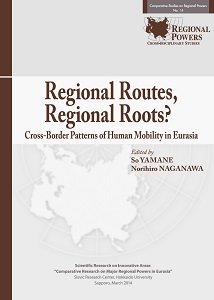Afghanistan as a Buffer State between Regional Powers in the Late Nineteenth Century. An Analysis of Internal Politics Focusing on the Local Actors and the British Policy
Afghanistan as a Buffer State between Regional Powers in the Late Nineteenth Century. An Analysis of Internal Politics Focusing on the Local Actors and the British Policy
Author(s): Masato Toriya
Subject(s): 19th Century
Published by: Hokkaido Slavic-Eurasian Reserarch Center
Keywords: History of Afghanistan; Colonialism;
Summary/Abstract: This paper focuses on the period just after the outbreak of the Second Anglo-Afghan War, which began in 1878 and ended in 1881. According to a large number of previous studies, Afghanistan was fixed as a buffer state between Russia and British India as a result of the war and the Gandamak Treaty, which was concluded between Amīr Ya‘qūb Khān and the British on 26 May 1879, substantially as proof of the surrender of the Afghan side.
In this treaty, the Amīr of Kabul, a previous ruler of Afghanistan, not only ceded various territories but also handed over diplomatic rights to the British. In short, Afghanistan was virtually a British protectorate until 1919. It is also well known that Afghanistan later became a major political battlefield between the US and the Soviet Union during the Cold War era in the latter half of the twentieth century. This meant that Afghanistan would again be considered a buffer state between two countries.
Book: Regional Routes, Regional Roots? Cross-Border. Patterns of Human Mobility in Eurasia
- Page Range: 49-62
- Page Count: 13
- Publication Year: 2017
- Language: English
- Content File-PDF

